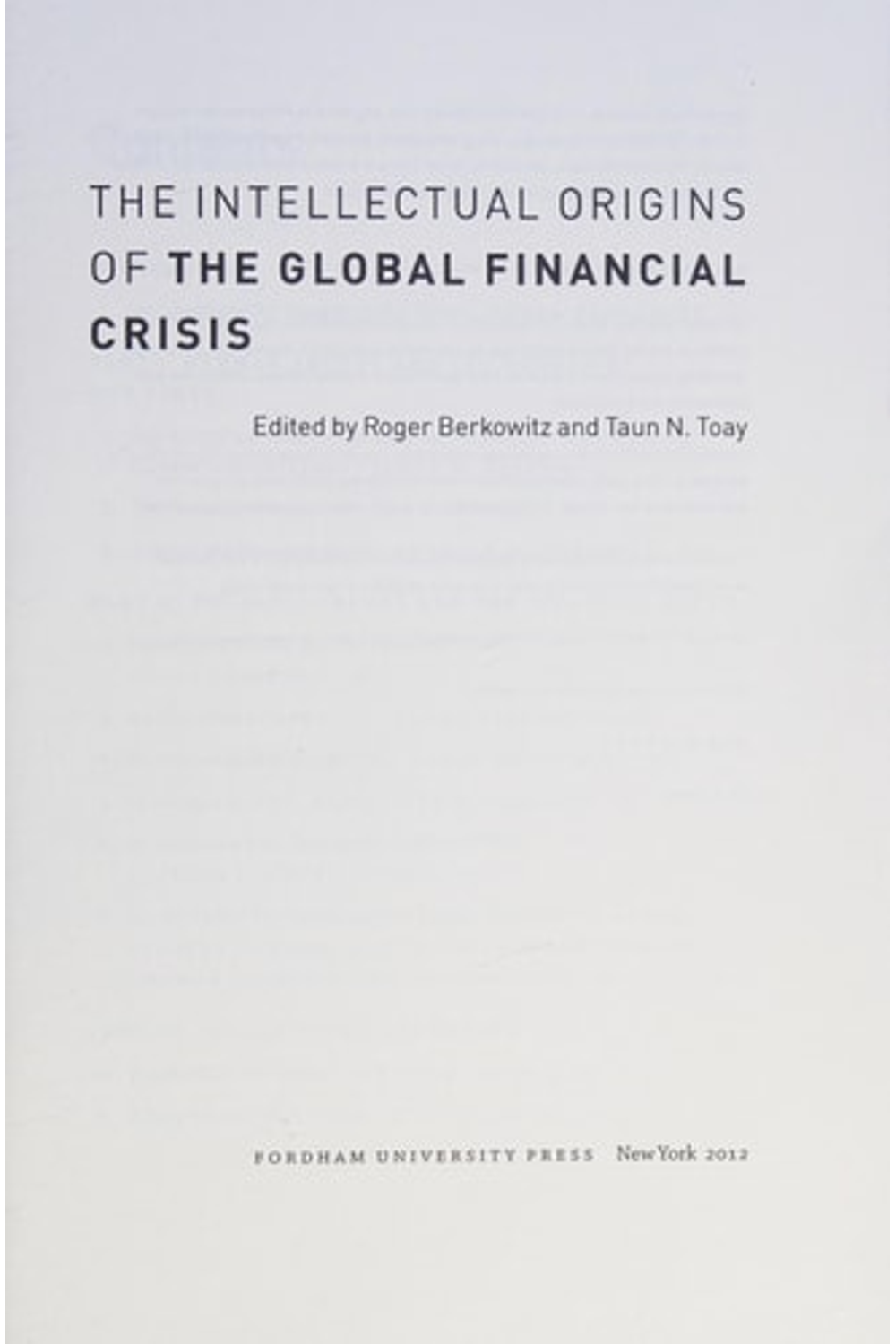Navigate the intellectual fault lines that triggered the 2008 financial earthquake with Roger Berkowitz and Taun N. Toay’s *The Intellectual Origins of the Global Financial Crisis*. This isn’t another post-mortem dissecting subprime mortgages; it’s an excavation of the philosophical, cultural, and intellectual bedrock upon which the crisis was built. Thinkers like Hannah Arendt, Max Weber, and Adam Smith provide lenses through which the contributing authors scholars and business leaders alike examine the unchecked expansion of capital, the erosion of ethical boundaries, and the dangerous subservience of politics to economics. The book pushes beyond surface-level analysis, asking *why* the crisis occurred rather than merely *how*, offering a framework for understanding systemic vulnerabilities and paving the way for more responsible economic practices. It’s a compelling read for anyone seeking a deeper understanding of the crisis beyond the headlines, and a critical examination of the ideas that shape (and sometimes break) our world. The book is a paperback edition with 232 pages, published in 2012 by Fordham University Press, ISBN 9780823249619.
The Intellectual Origins of the Global Financial Crisis
19,40 $
In stock
Commentary on the financial crisis has offered technical analysis, political finger pointing, and myriad economic and political solutions. But rarely do these investigations reach beyond the economic and political causes of the crisis to explore their underlying intellectual grounds. The essays in this volume delve deeper into the cultural and intellectual foundations, philosophical ideas, political traditions, and economic movements that underlie the greatest financial crisis in nearly a century. Moving beyond traditional economic and political science
approaches, these essays engage thinkers from Hannah Arendt to Max Weber and Adam Smith to Michel Foucault.
With Arendt as a catalyst, the authors probe the philosophical as well as the cultural origins of the great recession. Orienting the volume is Arendts argument that past financial crises and also totalitarianism are rooted, at least in part, in the tendency for capital to expand its reach globally without regard to political and moral borders or limits. That politics is made subservient to economics names a cultural transformation that, in the spirit of Arendt, guides these essays in making sense of our present world.
Including articles, interviews, and commentary from leading scholars and business executives, this volume offers views that are as diverse as they are timely. By reaching beyond how the crisis happened to why the crisis happened, the authors re-imagine the recent financial crisis and thus provide fresh thinking about how to respond.
| Authors | |
|---|---|
| Binding | |
| Condition | |
| ISBN-10 | 0823249611 |
| ISBN-13 | 9780823249619 |
| Language | |
| Pages | 232 |
| Publisher | |
| Year published | |
| Weight | 318 |
| Edition | 1 |
| Dewey decimal | 330.9/0511 |
Related products
Logicomix
31,84 $
- Additional information
- Currencies
- USD – United States dollar
- EUR – Euro
- GBP – Pound sterling
- CNY – Chinese yuan
- BRL – Brazilian real
- MXN – Mexican peso
- JPY – Japanese yen
- PHP – Philippine peso
- THB – Thai baht
- PLN – Polish złoty
- CAD – Canadian dollar
- MYR – Malaysian ringgit
- AUD – Australian dollar
- TWD – New Taiwan dollar
- CZK – Czech koruna
- SEK – Swedish krona
- HUF – Hungarian forint
- ILS – Israeli new shekel
- CHF – Swiss franc
- HKD – Hong Kong dollar
- DKK – Danish krone
- SGD – Singapore dollar
- NOK – Norwegian krone
- NZD – New Zealand dollar





